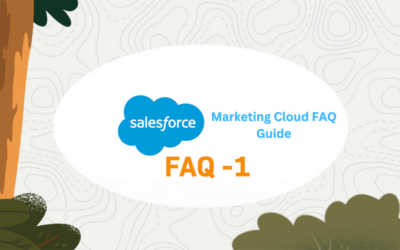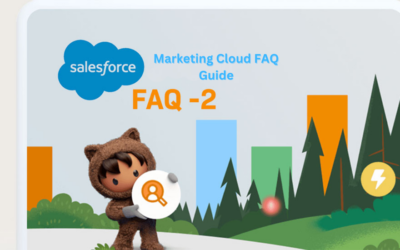In the dynamic realm of digital marketing, choosing the right marketing automation platform is nothing short of pivotal in achieving success. Among the leading contenders in this landscape, HubSpot and Marketo stand as prominent icons, each boasting a unique set of features and capabilities. In this in-depth comparison, we will meticulously dissect these two marketing powerhouses, examining their multifaceted attributes, pricing structures, user-friendliness, integration possibilities, and support offerings, equipping you with the knowledge to make an educated choice. Moreover, we will explore beyond these industry giants, providing you with insights into alternative marketing automation solutions for those who seek a comprehensive view of their options in today’s ever-evolving digital marketing ecosystem.
As we embark on this comprehensive journey, we’ll navigate through the intricacies of HubSpot and Marketo, illuminating their strengths and weaknesses, and offering real-world insights to assist you in selecting the perfect fit for your unique business needs. Whether you’re a fledgling startup looking to establish a strong digital presence, a mid-sized enterprise aiming to optimize lead management, or a corporate giant with intricate B2B marketing requirements, this exploration will empower you with the knowledge to make a well-informed decision. So, fasten your seatbelts as we delve deep into the world of marketing automation, pitting HubSpot against Marketo, and uncovering a range of alternatives that may well hold the key to your marketing success. If you need assistance with Salesforce CRM setup and optimization, companies like CRM Force can provide valuable expertise and support.
1- HubSpot – The All-In-One Marketing Marvel
What is HubSpot?
HubSpot is a versatile, all-in-one inbound marketing platform that’s a favorite among businesses of all sizes. It offers an extensive suite of tools, including Customer Relationship Management (CRM), email marketing, social media management, content management, and more. What sets HubSpot apart is its user-friendly interface and the convenience of having all your marketing needs under one digital roof.
Features and Benefits
Inbound Marketing Excellence: HubSpot is the pioneer of the inbound marketing methodology, emphasizing the three pillars of attracting, engaging, and delighting customers. This approach has become a staple in modern marketing strategies.
Robust CRM: HubSpot’s integrated CRM is not only potent but also free, making it a go-to choice for small businesses looking to manage their contacts, sales, and customer interactions efficiently.
Email Marketing Prowess: HubSpot offers a comprehensive email marketing system that enables you to create, launch, and monitor email campaigns with ease. The platform provides an intuitive email editor and robust analytics to track email performance.
Content Management: Their Content Management System (CMS) is user-friendly and perfect for content marketers seeking to streamline their efforts. It empowers you to create, edit, and optimize your website content effortlessly.
In-Depth Analytics: HubSpot provides you with detailed analytics that give you valuable insights into the performance of your marketing strategies. These insights enable data-driven decision-making and continuous improvement of your marketing efforts.
Pricing
HubSpot offers a range of pricing tiers, starting with a free plan, making it accessible to businesses of all sizes. However, as your business grows and demands advanced features like marketing automation, CRM integration, and sales acceleration, you may find yourself moving up the pricing ladder. It’s important to carefully assess your needs to determine which plan suits your budget and requirements.
Ease of Use
HubSpot is renowned for its intuitive interface. Even beginners in marketing automation can swiftly adapt and start using its tools effectively. This user-friendliness reduces the learning curve, allowing businesses to get up and running quickly and efficiently.
Integrations
The platform offers a wide array of integrations with other software and services, making it highly customizable to your specific needs. Popular integrations include Salesforce, WordPress, Shopify, and more. This extensive list of integrations allows you to tailor your marketing efforts, streamlining your workflow and expanding your capabilities.
Support
HubSpot provides comprehensive support through email, phone, and a substantial knowledge base. Furthermore, the HubSpot community is a rich resource for users seeking advice, best practices, and valuable insights from fellow marketers. The availability of such extensive support options ensures that users can access assistance when they need it most.
2- Marketo – The Enterprise-Level Powerhouse
What is Marketo?
Marketo, now a part of Adobe Experience Cloud, stands as an enterprise-level marketing automation platform with a particular focus on B2B marketing. It is designed to handle intricate marketing strategies and caters primarily to larger businesses.
Features and Benefits
Scalability: Marketo is renowned for its scalability, making it an ideal choice for large enterprises and businesses with complex marketing needs. It’s capable of handling a high volume of leads, making it an attractive option for organizations with expansive databases.
Lead Management Expertise: Marketo offers advanced lead management and nurturing features. It excels in lead scoring, automated lead nurturing, and personalized messaging, making it a powerhouse for B2B marketing strategies. The platform empowers businesses to build strong relationships with leads and guide them through the sales funnel efficiently.
Analytics and Reporting: The platform provides in-depth analytics and reporting capabilities, allowing you to meticulously track and measure your campaign performance. Marketo’s reporting tools offer a high level of customization, enabling you to gain insights into various aspects of your marketing efforts.
Personalization Perfection: Marketo is known for its personalization capabilities. It allows you to deliver highly tailored content and experiences to your audience. This level of personalization can significantly boost engagement and conversion rates.
Pricing
Marketo’s pricing structure is not readily available on their website. It typically follows a customized pricing model based on your business’s specific needs. While this approach provides flexibility, it also means that Marketo is usually on the higher end of the pricing spectrum. As such, it’s less accessible to smaller businesses operating on a limited budget.
Ease of Use
Marketo is often perceived as a more complex platform, especially when compared to HubSpot. It may require a steeper learning curve, particularly for those who are new to the world of marketing automation. While its depth and complexity are strengths for enterprise-level businesses, it may be a challenge for newcomers.
Integrations
Just like HubSpot, Marketo offers a range of integrations. This includes seamless integration with other Adobe products, which can be highly beneficial if your organization is already invested in Adobe’s suite of tools. This allows for a seamless ecosystem of data sharing and streamlined workflows within the Adobe ecosystem.
Support
Marketo provides support through phone, email, and an extensive knowledge base. However, it’s worth noting that some users have reported challenges with customer support responsiveness. This potential drawback should be considered, especially if your organization places a high premium on timely assistance.
3- HubSpot vs Marketo – A Detailed Comparison
Target Audience
HubSpot: A versatile option suitable for businesses of all sizes, with a strong emphasis on inbound marketing. It caters to both B2C and B2B businesses, making it a well-rounded choice.
Marketo: Better suited for larger enterprises and businesses with complex B2B marketing needs. It is a specialized platform ideal for organizations that focus primarily on B2B marketing and demand advanced lead management and personalization features.
Pricing
HubSpot: Offers a range of pricing tiers, including a free plan. While this makes it accessible to small businesses, advanced features come with higher pricing, potentially increasing costs as your business grows.
Marketo: Customized pricing tailored to your business’s specific needs. Generally, Marketo’s pricing is on the higher end and is more suitable for larger enterprises with the budget to match.
Ease of Use
HubSpot: Renowned for its user-friendly interface, making it accessible to users of all experience levels. Its ease of use reduces the learning curve, making it an attractive choice for businesses looking to get up and running quickly.
Marketo: More complex and may necessitate a steeper learning curve. The depth of features and advanced capabilities is an advantage for experienced marketers but can be challenging for newcomers.
Features
HubSpot: Offers a wide range of tools and primarily focuses on inbound marketing strategies. Its feature set is well-rounded and covers the entire marketing spectrum, from content creation and email marketing to CRM and automation.
Marketo: Specializes in lead management and personalization, making it ideal for complex B2B marketing. It offers advanced lead nurturing, scoring, and personalized messaging features that cater to the intricate needs of enterprise-level businesses.
Integrations
HubSpot: Offers a wide array of integrations with various software and services, allowing for flexibility and customization. Popular integrations include Salesforce, WordPress, Shopify, and more.
Marketo: Provides a range of integrations, with a strong focus on seamless integration within the Adobe ecosystem. If your organization already uses Adobe products, Marketo offers a cohesive and integrated solution.
Support
HubSpot: Provides comprehensive support through email, phone, and a robust knowledge base. The HubSpot community is also a valuable resource for users seeking advice, best practices, and community support.
Marketo: Offers support through phone, email, and a knowledge base. However, some users have reported challenges with customer support responsiveness, which is worth considering, especially if quick assistance is essential for your business.
4- Exploring HubSpot Alternatives
While HubSpot is undeniably a stellar marketing automation platform, it’s essential to acknowledge that it’s not the sole player in the field. If you’re searching for alternatives to HubSpot, here are some compelling options to consider:
Mailchimp
Ideal for Small Businesses: Mailchimp is an excellent choice for small businesses with a strong focus on email marketing. Its user-friendly interface and straightforward approach make it a popular option.
Pricing Flexibility: Mailchimp offers a free plan and various pricing tiers, providing budget-friendly options for businesses at different stages of growth.
Pardot
Part of Salesforce: Pardot is a part of the Salesforce ecosystem, making it a seamless choice for businesses already using Salesforce CRM.
B2B Focus: Pardot specializes in B2B marketing and offers advanced lead management and automation features.
ActiveCampaign
Email Marketing and Automation: ActiveCampaign is an excellent all-in-one solution for both email marketing and marketing automation. It features a visual automation builder for ease of use.
CRM Integration: ActiveCampaign provides CRM functionality, enabling businesses to manage contacts and sales in addition to marketing.
Zoho CRM
Affordable Option: Zoho CRM offers marketing automation tools integrated with a CRM system. It’s known for its affordability and is an ideal choice for small to medium-sized businesses.
User-Friendly: Zoho CRM’s user-friendly interface makes it accessible to businesses looking for a straightforward and budget-friendly solution.
Conclusion
In the intense showdown between HubSpot and Marketo, the choice you make hinges on several key factors, including the size of your business, your specific marketing strategy, and your budget constraints. HubSpot, with its all-in-one convenience and broad appeal, suits a wide array of businesses and is a top choice for those looking to implement inbound marketing strategies. On the other hand, Marketo, with its B2B focus and scalability, is an exceptional choice for large enterprises with complex marketing needs. Its lead management and personalization capabilities make it a powerhouse for businesses that deal with high lead volumes and demand advanced automation.
When deciding between these two marketing automation giants, it’s imperative to thoroughly evaluate your specific requirements and goals. Whether you’re leaning towards HubSpot or Marketo, both platforms bring unique strengths and capabilities to the table, ensuring your marketing endeavors are set up for success. For those seeking alternatives to Marketo, the landscape is indeed diverse, providing you with a variety of options tailored to your distinct needs and preferences, ultimately allowing your business to thrive in the ever-evolving digital marketing arena. To learn more about how CRM Force can assist you in recruiting top CRM talent and optimizing your CRM strategies for successful drip campaigns, contact us today. Together, let’s maximize your customer engagement Contact Us today.





